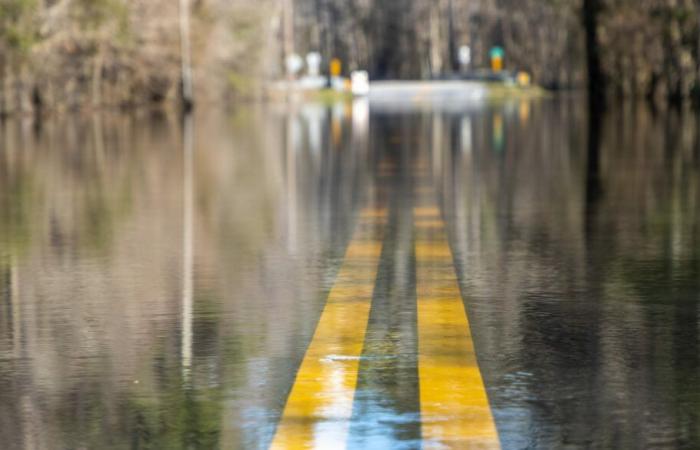Is climate change affecting flooding around the world?
Jan Polcher. Climate change influences the water cycle. A colleague described it very well in the first order: with climate change, dry regions become drier and humid regions become wetter1. This is explained by a well-known physical process: the Clausius-Clapeyron relation. The increase in surface temperature of the atmosphere causes an increase in the quantity of water vapor in the atmosphere, by approximately 7% with each additional degree.
As a result, precipitation is more intense. According to the latest report from the Intergovernmental Panel on Climate Change (IPCC), there has been an increase in the frequency and intensity of extreme precipitation on a global scale on continents since the 1950s, particularly in Europe, North America and Asia2. But it should be noted that our understanding of this subject has evolved little in recent decades, and we cannot say that we adequately characterize the impact of climate change on extreme precipitation.
Why is it so difficult?
This is linked to the very nature of extreme precipitation: it is very intermittent and geographically variable. It can rain a lot in one valley for a few hours, and not at all in the next one. However, our precipitation observation system is not at all suitable for recording this type of weather event; this requires the installation of a large number of instruments such as rain gauges. Although certain regions of the world such as Europe or North America are better instrumented, this is not the case for many areas, particularly tropical areas.
Added to this lack of data is the performance of computer models used to simulate and better understand the climate. Classic models simulate the planet’s climate by dividing it into grids of around a hundred square kilometers each, a resolution far too high to simulate extreme rainfall. We are working to reduce this scale, but it is a colossal scientific and technical challenge.
Are we still able to anticipate extreme precipitation and floods of the future?
It’s extremely difficult. The physical processes – such as the Clausius-Clapeyron relation – at play will always be the same, and we can rely on them to make predictions. But many other processes make a rain event a flood: they can be biological (like vegetation), chemical (like the amount of aerosols) or even human (like land use).
-All these parameters evolve at the same time as climate change, so it is very difficult to successfully predict hydrological changes, particularly extreme rainfall. The only finding that there is consensus is the overall trend toward increasing frequency and intensity of extreme rainfall as the climate warms. But this does not provide information on local or seasonal impacts.
Are certain regions more affected?
No, everyone is affected. The impact of global warming on the water cycle is the most important for human societies. One of the main problems is that humanity has learned to control the hydrological resource since Antiquity, this has been fundamental for the development of modern societies. But hydraulic structures – designed to store water and control floods – are designed for a past climate. However, with a different climate today – and in the future – our infrastructure is no longer suitable and we are losing this control.
You’re talking about extreme rain, not flooding… Why?
Flooding and extreme rain are two different concepts. Extreme precipitation does not always cause flooding and vice versa. The risk of flooding depends on the climate but also on the direct impact of human activities. This factor is important: in Europe, the hydrological variations observed are mainly explained by the anthropization of the hydrological cycle3. This involves, for example, soil waterproofing, which increases the risk of flooding, while certain hydraulic works can reduce it. Many anthropogenic factors influence the continental water cycle – irrigation, urbanization, management of river navigability, hydropower, etc. It is very difficult to separate the impacts of climate change from those of human activities on the hydrological cycle, which makes future flood projections even more complex.
What is our understanding of flood risk in the future?
It is almost impossible to anticipate it on a local scale. All we know, as the IPCC points out, is that during an intense precipitation event, the intensity is increased by the presence of more water vapor in the atmosphere.4. But as flooding is also affected by human activities, as well as other climatic phenomena (melting of glaciers, rising sea levels, drought), it is not possible to know whether the risk of flooding will increase or even decrease in the future, for a given location.






